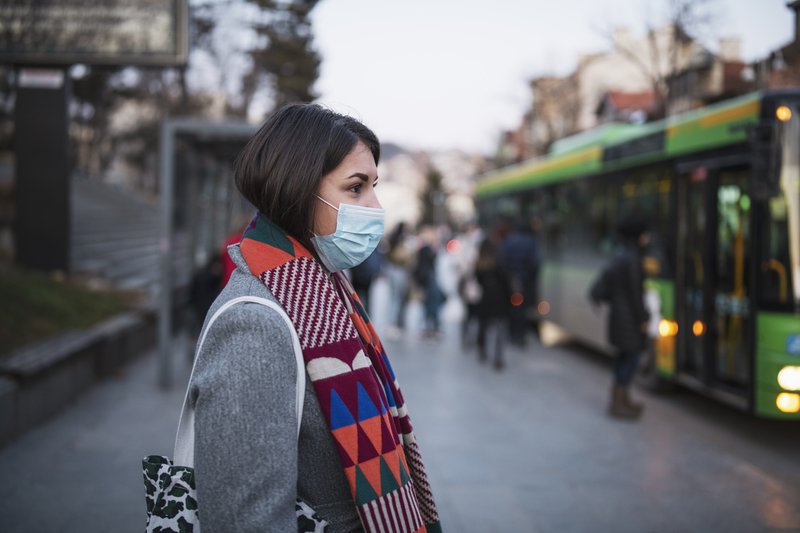
Nov. 25, 2020
With COVID-19 infections surging across Canada, Ontario and British Columbia have introduced new lockdown rules to try to slow the rate of transmission.
The virus hot spots of Toronto and Peel moved to a 28-day “lockdown” as of Monday morning.

While schools and child care centres remain open, restaurants and bars are now restricted to takeout food and booze only with all patios closed, and many types of retail stores must operate with curbside pick-up or delivery only.
For many, these measures were a source of relief, but for others, including business owners and low-income workers, there is a mounting sense of frustration.
In the last several months, coronavirus cases have surged after holidays and long weekends, making it clear that many people are still travelling, socializing and gathering in large groups. Others are continuing to refuse to wear masks indoors even if they have no medical reason not to.
Why can’t more people stick to good pandemic habits such as physical distancing, isolating and wearing masks?
Is everyone just growing tired of the rules?
In the spring, many of us were sharing sourdough bread recipes and posting motivational memes to urge friends to do their part by staying apart, so we could all be alive and well when it’s safe to gather again.
But like New Year’s resolutions that are prone to failure, it can be difficult for humans to stick with habits we know to be healthy.
A 2007 study from the University of Bristol involving 3,000 subjects showed that 88 per cent of those who set New Year resolutions failed, despite the fact that more than half of the study’s participants were confident of success.
A pioneering 1989 study from researchers at the University of Scranton found that six months was the time it generally took for the majority (60 per cent) of New Year resolutions to fail.
So it’s not surprising that when Canadians entered their sixth month of the COVID-19 pandemic, an August 2020 poll by the Angus Reid Institute found that one-in-five Canadians were making little to no effort to stop coronavirus spread.
Age was among the most significant factors. Younger Canadians were the least likely to follow recommended protocols, the poll found.
Meanwhile, immigrant groups in Canada were overwhelmingly more likely to put on a mask than non-immigrants as a precaution against the coronavirus, according to a study commissioned by the Association for Canadian Studies.
This can be explained by the science behind habit-formation, too.
Association for Canadian Studies president Jack Jedwab told the Star he believes groups from Asia, South Asia and the Middle East are more accustomed to wearing protective masks due to air pollution in the countries from which their families have come. Previous exposure to SARS, MERS (Middle East Respiratory Syndrome) and H1N1 swine flu in those regions has also heightened awareness of pandemic precautions.
Consistently following COVID-19 safety protocols requires considerable will power, and consistent sources of motivation.
It can take anywhere from 18 to 254 days for a person to form a new habit and an average of 66 days for a new behaviour to become automatic, according to o a 2009 study published in the European Journal of Social Psychology.
“We are now at a strange place,” says Steve Joordens, a professor of psychology at University of Toronto Scarborough.
“The virus has been with us for a long time and is actually stronger than it has ever been ... yet with the vaccines on the horizon we have a sense that we may indeed be returning to some form of normal by this time next year.”
In order to safely get through the coming months before a vaccine may become widely available, Joordens suggests thinking of concrete things to look forward to next year.
If you refuse to settle for second hand news and think that your loved ones shouldn’t either, give them the gift of the Star.
“Maybe we don’t go home for Christmas this year, but we can discuss how we can make next Christmas especially cool! It’s like we pay the price for the next 6 months but as we do we make plans to look forward to. Maybe a bigger family gathering, maybe we’ll all travel somewhere next year together, or do something extra special,” he told the Star.
And pandemic fatigue is real.
“It’s hard for people to keep doing something when they don’t know if there’s an end in sight,” says Dr. Anna Banerji, an infectious disease specialist at the University of Toronto.
“Everyone’s tired. We’re all tired. The virus has been a huge disruption especially for people who can’t see their friends and family, have precarious income, or saw their business shut down.
“The worst may be coming in these next few months but we just have to hang in there because there is a light at the end of the tunnel,” Banerji told the Star.
Federal Health Minister Patty Hajdu has said it is “really exciting” that Canada is well-positioned to receive millions of vaccine doses from both companies with promising human trials so far, Pfizer and BioNTech.
Here are three scientifically-proven ways to help stick with your resolutions, according to John Norcross, a professor of psychology who co-authored the University of Scranton study on New Year’s resolutions.
These can be adapted to helping you stick with COVID-19 pandemic habits.
Set daily goals: Research shows that people are more likely to achieve their resolutions if they bring immediate gratification, rather than delayed. So, set daily goals to provide continuous motivation.
Find a buddy: Having a resolution buddy doesn’t make much of a difference right away, but social support tends to help people stick with their resolutions longer-term.
Avoid triggers: Avoid people, places or activities that trigger your lapses in judgment.


